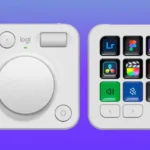In the rapidly evolving world of AI, Meta has taken another bold step by introducing NotebookLlama—its own “open” implementation inspired by Google’s popular generate-a-podcast feature, NotebookLM. This unique tool uses Meta’s own Llama models for text processing, delivering a fresh way to generate podcast-style discussions from uploaded text files. With its blend of dramatization, voice modulation, and AI-generated dialogue, NotebookLlama aims to reshape how we consume written content in audio form. But does it hit the mark?
A Peek Inside NotebookLlama
NotebookLlama works similarly to NotebookLM by transforming text files, like PDFs of articles or blog posts, into audio-driven podcast formats. It first creates a transcript of the file’s content and then adds dramatization, including interruptions and varied inflections, to mimic the spontaneity of a real podcast conversation. Finally, the enhanced transcript is run through open text-to-speech (TTS) models to bring the text to life in a new, engaging format.

This approach is promising, especially for anyone looking to consume content on the go or simply engage with information in a fresh way. Yet, while NotebookLlama’s intent is innovative, it still faces hurdles in delivering the same level of polish as Google’s NotebookLM.
The Good, the Bad, and the Robotic
Although NotebookLlama produces listenable content, it does suffer from some common AI challenges, especially regarding the quality of the generated voices. Many listeners have noted that the voices have an unmistakably robotic quality, lacking the natural cadence and tone that would make the podcast feel authentic. In some samples, voices even talk over each other at odd points, creating an unintended (and somewhat humorous) chaos.
Meta’s researchers are aware of these limitations, emphasizing on the project’s GitHub page that the TTS model is a current bottleneck to achieving truly natural-sounding audio. However, they remain optimistic, suggesting that improved TTS models could significantly elevate the listening experience.
Further, the research team hints at an exciting prospect: a future version of NotebookLlama could incorporate two separate “agents” to debate a topic and write a more dynamic podcast outline. This would offer a more nuanced and engaging narrative flow, something the current single-model outline struggles to capture. Such advancements could bring a new level of sophistication and interest to AI-generated podcasts.
Overcoming AI’s Limitations: The Hallucination Challenge
NotebookLlama, like most AI-powered tools, isn’t immune to the infamous “hallucination” problem—an industry term for the AI’s tendency to generate content that’s factually incorrect or fabricated. Even NotebookLM, the model that inspired NotebookLlama, grapples with this issue, so it’s no surprise that Meta’s version also has a way to go in maintaining accuracy.
This limitation raises questions about how much trust listeners can place in AI-generated content, especially if the podcast is providing information on complex or nuanced topics. AI enthusiasts and skeptics alike are eagerly watching this space, curious to see which developments will reduce the risk of inaccuracy and deliver reliable, AI-driven audio content.
Setting NotebookLlama Apart
While NotebookLlama is far from a flawless solution, it represents an important step towards democratizing advanced AI features in content creation. By offering an open-source approach, Meta is positioning NotebookLlama as a potential springboard for developers, creators, and hobbyists to experiment, adapt, and refine the tool, hopefully improving its quality and versatility over time.
Meta’s open-source release is also a stark contrast to the more closed approach typically taken by large tech companies in developing AI tools. By providing access to the code, Meta has lowered the barrier for innovation and invited a larger community to contribute to NotebookLlama’s development. This could lead to improvements in voice quality, dialogue interaction, and even the elimination of hallucinations, with a broader AI community working to iron out these kinks.
The Road Ahead for AI-Driven Podcasts
As AI continues to push boundaries, tools like NotebookLlama signal a new era for media consumption. Though far from perfect, Meta’s entry into the AI audio generation space opens up exciting possibilities for automated content creation. Imagine a world where text-based content—from news articles to blog posts to research papers—could seamlessly transform into engaging, dynamic podcasts on demand.
For now, the AI audio space remains a work in progress, and NotebookLlama will need more refinement before it can stand toe-to-toe with its inspiration, NotebookLM. But with Meta’s commitment to improvement and the AI community’s active involvement, NotebookLlama could very well become a compelling option in the growing market of AI-powered audio experiences.
While the current robotic voices and overlap issues may be distracting, the promise behind NotebookLlama lies in its potential. It’s a vision of a future where high-quality, AI-driven, open-source podcasting is just as accessible as reading the latest news on your favorite app.
In the meantime, get ready to hear AI-generated voices telling your favorite stories—glitches and all.










